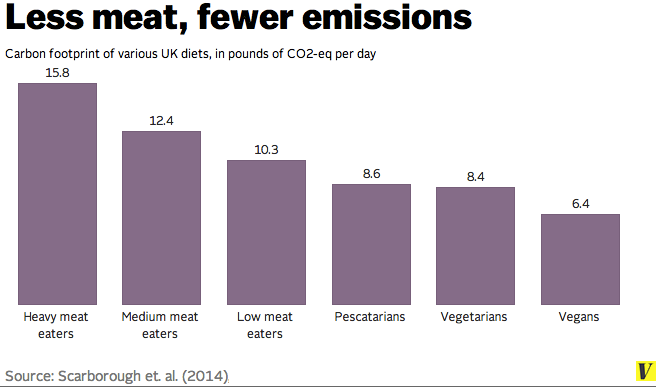Like most applicants, I applied to the Students Hubs’ Social Impact Internship Scheme a little unsure of where I would end up but confident in the expectation of an interesting and worthwhile placement. I was keen to experience environment and energy-related issues outside of the student bubble, and with an impending graduation I also hoped an internship would help me define my interests. After a few months of anticipation, I was delighted to hear that I would be working with Cambridge Sustainable Food (CSF), a brand new charity working to promote sustainable food in Cambridge.
Whilst being such a crucial part of our daily lives, food is often overlooked in the grand scheme of climate change and energy issues. I was surprised to discover that food makes up approximately a fifth of our average personal carbon footprints . Though initially shocking, this statistic should give us hope as food is an area in which we can make a big difference relatively easily through our choices. Going from a heavy-meat to a low-meat diet can take a third off your food-related carbon footprint, and going vegetarian would almost halve it.
But carbon is only one fragment of food sustainability. CSF works towards a future in which food is affordable, traded fairly (for both local and distant producers), not damaging to our ecosystems, healthy for our bodies, with minimized waste, and with a low carbon footprint. The task now is to make these components compatible, and to show people, politicians and businesses why it’s important that they are.
Working with a relatively new and small charity allowed me to see how a charity is run from all angles. In my first week I found myself running a CSF stall at a local festival (which meant quickly getting to grips with CSF’s aims!), and since then my work has included writing newsletters, redesigning a website, updating databases, researching local food habits and sustainable food outlets, and plotting maps of poverty. Along the way, I also spent time discovering a burgeoning food scene in Cambridge, meeting inspiring sustainability activists, and sampling plenty of delicious (and, of course, sustainable) food.
If you’re hoping to apply to the scheme, don’t be afraid to share what you’re passionate about in your interview – be it a skill, an issue, or a desire to know more about the sector. The Student Hubs team work hard to ensure you’re matched with the best host for you, though if you’re surprised by some of the organisations offered to you, finding opportunities you would never have thought to try is one of the best parts of the experience.
Throughout this internship, I’ve travelled from fresh graduate to sustainable foodie. Thank you to CSF and Student Hubs for a brilliant and memorable summer, an experience which will be invaluable in my next role as a research assistant for the not-for-profit sector, and which was definitely important in helping me achieve it. Learning to speak the language of WordPress, to navigate the roads of google maps, and to convey the complexity of sustainable food, I’ve also uncovered a new side to a city I thought I knew well, confirmed my interest in research, and changed the way I think about food.

